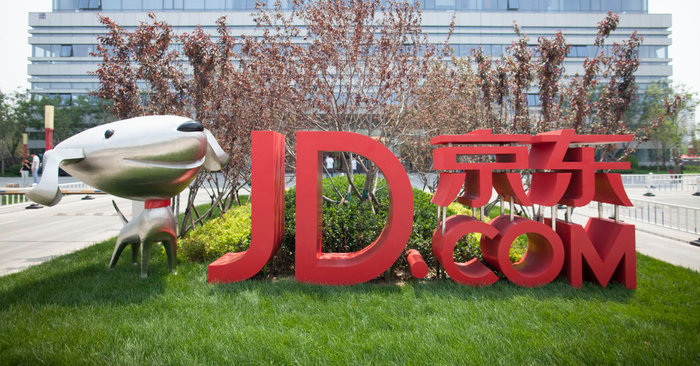Adding JD.com To The Portfolio
We have initiated a long position in JD.com (JD) in the mid $30s. That makes it our third stock pick of the year, following The Trade Desk (TTD) and Alphabet (GOOG, GOOGL), up 80%+ and 20%+ respectively since the release of our long theses.
JD.com is the largest retailer in China by revenue, and the largest direct online seller. Its e-commerce platform has over 300 million active customers, an counting.
Richard Liu, Founder, Chairman and CEO, has built an exceptional corporate culture, one obsessed with efficiency and customer experience.
To guarantee the best customer experience, JD.com operates an in-house nationwide logistics network that provides customers anywhere in China with same- and next-day delivery. The logistics network is end-to-end, integrating fulfillment centers, warehouses and last-mile delivery assets, and can handle the entire spectrum of products, from heavy washing machines to fresh groceries.
JD.com fulfillment services are now offered to third parties, as are the underlying technologies. JD.com also offers financial services to suppliers, merchants and customers through partially owned subsidiary JD Finance. Over time, this will make the company less of a pure retailer and more of a provider of value added services.
The company maintains strategic relationships with Chinese social media giant Tencent (TCEHY) — which allows JD.com to reach consumes via omnipresent WeChat, and US companies Walmart (WMT) and Alphabet.
We believe that JD.com is ideally positioned to continue to benefit from several Chinese mega-trends, including urbanization, the rise of Chinese consumers and the expansion of Internet in China. Both in an absolute sense, and relative to its competitors.
Having roughly half of its GMV sold directly from its inventory and having gone through the pain of building an in-house logistic networks from the ground up, has no doubt impacted short-term profitability and cash flow. But today, JD.com can safeguard product authenticity, guarantee product availability an control the overall customer experience to an extent that archrival Alibaba's (BABA) Taobao and Tmall platforms have trouble to replicate.

Despite its unique strategic positioning, JD's common stock can be bought today for less than 1x sales. Included in the price are large amounts of cash equivalents, a 40% interest in JD Finance and minority stakes in a myriad of Chinese businesses.
Although JD.com generates decent amounts of cash, reported margins have been and will continue to be thin. This, and concerns about mighty Alibaba, are the most likely reasons behind the modest valuation.
Retail is a low-margin business per se, and investments in warehouses, new categories and automation technologies —to reinforce the strategic positioning and maintain 30%+ growth, end up leaking to the income statement, masking the underlying earnings power.
In a way, investors may be getting JD.com wrong for the same reasons that they got Amazon (AMZN) wrong and they have been getting Tesla (TSLA) wrong all along — anyone smelling the ongoing short burn?
The only sort of growth that generates shareholder value is growth at returns above cost of capital. Every professional investor knows that. Now, fortunately for us, when companies invest for the long term, precise returns on investment metrics (ROIC) are not readily available, and informed guesses are necessary. This is where run-of-the-mill investors get lost.
We argue that if a company is investing in assets that are fundamental to the future(think logistics networks, autonomy technologies, battery production capacity, etc.), and those investments are accompanied by 30%+ CAGR and limited amounts of cash burn and share dilution (relative to market cap), then those investments are very likely to produce extraordinary ROIC and hence sizable amounts of shareholder value.
Of course, you need the company to be around when the day to reap the benefits comes. But a company can get there without sizable FCF or GAAP profitability along the way, and this is what narrow accounting types miss time and again (we affectionately call them "bean counters" or "car counters" at IW).
As long as the company keeps cementing its dominant position with limited amounts of cash burn and share dilution, chances are that meaningful shareholder value is being created. It was the case with Amazon, and we are positive it will be the case with Tesla and JD.com.



